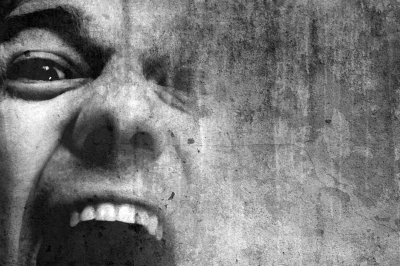You can’t control everything in your life and trying to will only make things worse.
Not being in control is stressful. Not knowing how things are going to turn out is scary. It would be nice if we could be assured of everything going our way. But that’s unrealistic.
The universe does not conspire to help you out. It doesn’t conspire to hurt you either. It’s not sentient so it doesn’t really think.
Other people do though. And they may or may not be trying to help you and a few of them may actually try to harm you for their own gain. That’s life. That’s what we all have to deal with. And some of us come into this life with a better hand and more privilege than others.
I’m not going to get into the subject of privilege here. What I want to talk about is how we best make do given the difficulties we have and the fact that we are going to have to work to get anything we want because – again, the universe isn’t going to magically provide for us.
The first step is to accept that reality. You don’t have control over everything in your life. You don’t’ have control over other people. You only have control of yourself and your choices. And your choices have an impact. In fact, your choices impact your future ability to make choices.
Each choice has a consequence. Those consequences can be good, bad or indifferent. While you can’t guarantee whether any given choice will result in a good outcome, you can change the odds to your favor and the cumulative effect of changing the odds slightly to your favor over the course of your life is astonishing.
Take for instance the choice to drive drunk or not. Driving drunk doesn’t guarantee you will get in an accident. Driving sober doesn’t guarantee you will get to where you are going alive. All that choice does is change the odds – to your favor or against you.
You make hundreds of decisions every day. What to eat, who to have sex with, whether to have sex, etc. The cumulative impact of all those choices, either in your favor or against you – impacts the quality of your life. The more you choose to do things that improve your odds, the more likely good things will happen to you.
You don’t have a lot of control over what happens to you. But you do have some control. If you want to be successful, it would be stupid to leave your fate totally to chance. Smart people make choices to improve their odds and they do this consistently throughout their lives.
If you want to learn more about how to exercise more control over your life and to improve your chances of success, however you define that, consider taking Planning for Personal Success – a Humanist Approach online course. Both of these will help you with your personal development.
Not being in control is stressful. Not knowing how things are going to turn out is scary. It would be nice if we could be assured of everything going our way. But that’s unrealistic.
The universe does not conspire to help you out. It doesn’t conspire to hurt you either. It’s not sentient so it doesn’t really think.
Other people do though. And they may or may not be trying to help you and a few of them may actually try to harm you for their own gain. That’s life. That’s what we all have to deal with. And some of us come into this life with a better hand and more privilege than others.
I’m not going to get into the subject of privilege here. What I want to talk about is how we best make do given the difficulties we have and the fact that we are going to have to work to get anything we want because – again, the universe isn’t going to magically provide for us.
The first step is to accept that reality. You don’t have control over everything in your life. You don’t’ have control over other people. You only have control of yourself and your choices. And your choices have an impact. In fact, your choices impact your future ability to make choices.
Each choice has a consequence. Those consequences can be good, bad or indifferent. While you can’t guarantee whether any given choice will result in a good outcome, you can change the odds to your favor and the cumulative effect of changing the odds slightly to your favor over the course of your life is astonishing.
Take for instance the choice to drive drunk or not. Driving drunk doesn’t guarantee you will get in an accident. Driving sober doesn’t guarantee you will get to where you are going alive. All that choice does is change the odds – to your favor or against you.
You make hundreds of decisions every day. What to eat, who to have sex with, whether to have sex, etc. The cumulative impact of all those choices, either in your favor or against you – impacts the quality of your life. The more you choose to do things that improve your odds, the more likely good things will happen to you.
You don’t have a lot of control over what happens to you. But you do have some control. If you want to be successful, it would be stupid to leave your fate totally to chance. Smart people make choices to improve their odds and they do this consistently throughout their lives.
If you want to learn more about how to exercise more control over your life and to improve your chances of success, however you define that, consider taking Planning for Personal Success – a Humanist Approach online course. Both of these will help you with your personal development.





